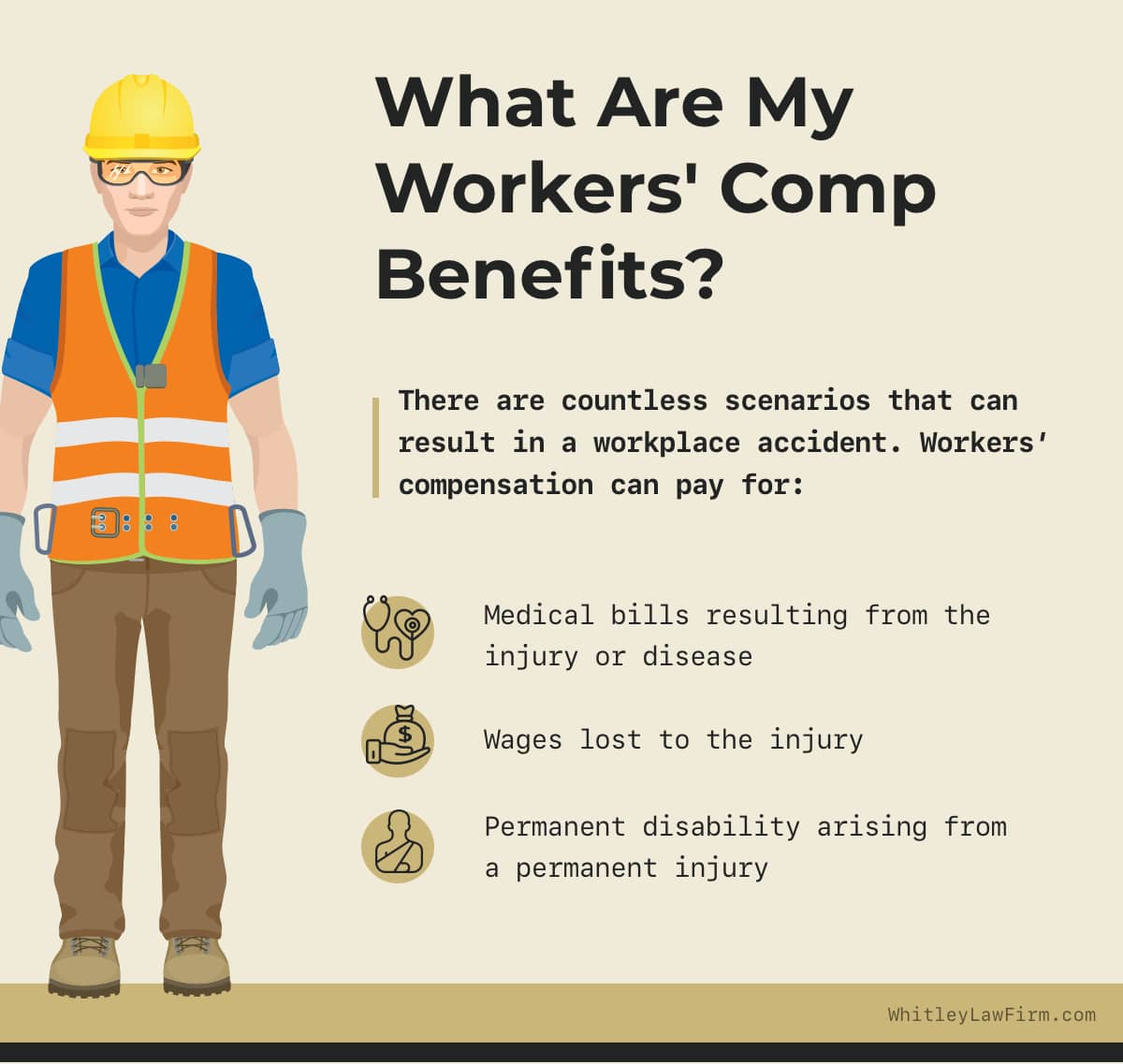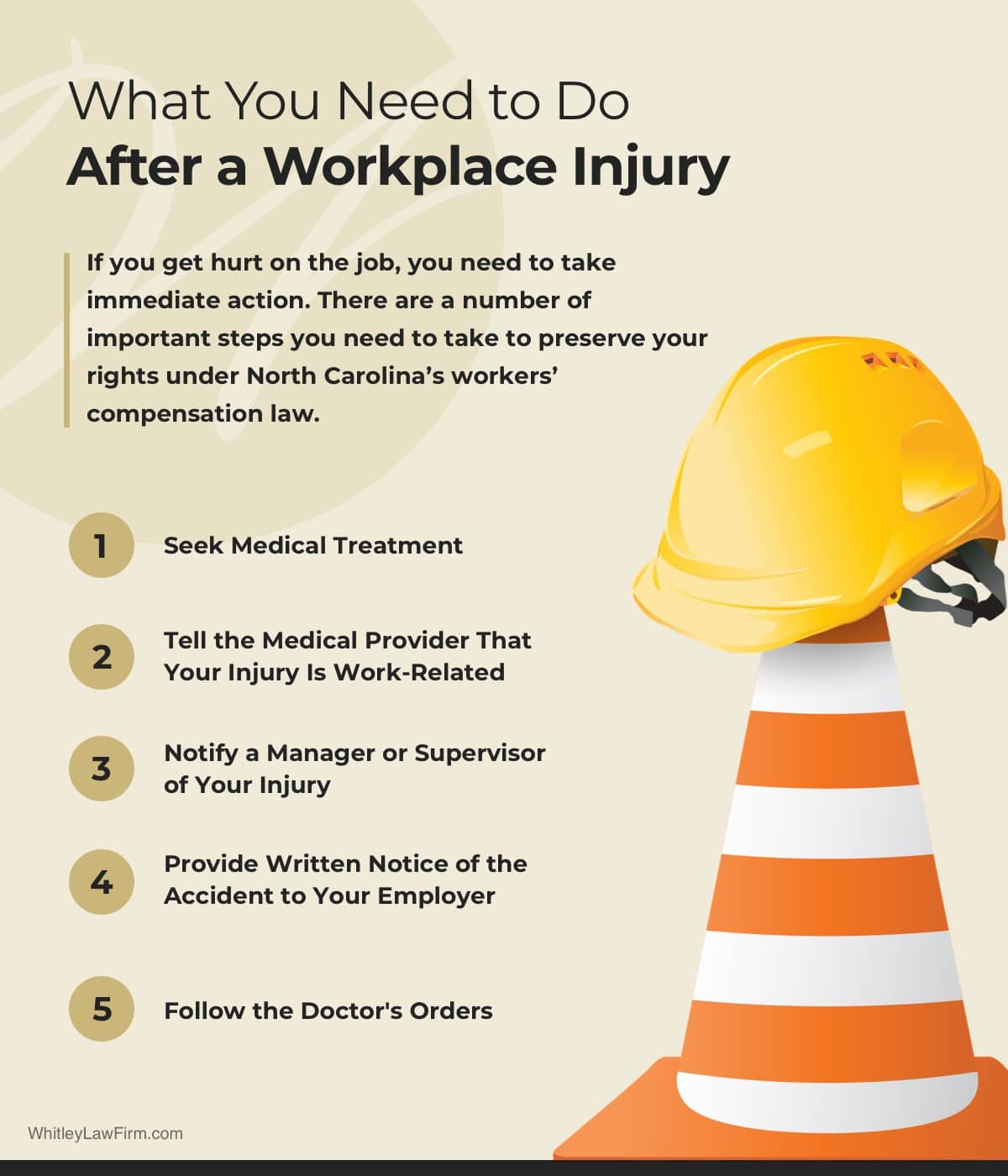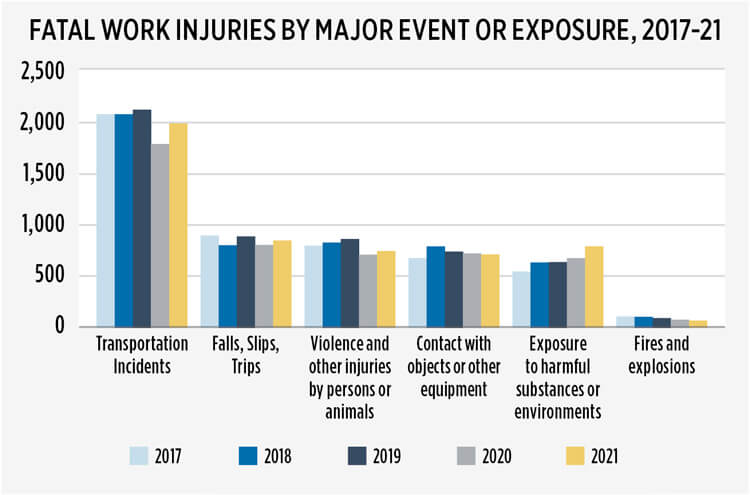Raleigh Workers’ Compensation Lawyer
If you have suffered an injury arising from an incident at your place of employment, were involved in a work accident, or have suffered what is called an “occupational disease” that resulted from your work, you may need a Raleigh workers’ compensation lawyer to be able to file a workers’ compensation claim.
Workers’ compensation is a benefit program that can provide medical payments and wage replacement in the event that you are injured at work. It is an extremely important system that injured workers in North Carolina rely heavily on for support. It is also a “no-fault” system, meaning you do not have to prove that the accident or your injuries were anyone’s fault.
To file a workers’ compensation claim, you must prove that the accident occurred while you were in the course and scope of your employment. There are times, however, when injured workers encounter difficulty with their employer or their insurance carrier. When this happens, you can have trouble getting the benefits you deserve.
Our workers’ compensation lawyers in Raleigh genuinely care about our clients and offer 24/7 legal guidance to those in need. Contact us today if you need a strong legal advocate on your side as you try to navigate the workers’ comp system in North Carolina.
What to Do After a Workplace Injury in Raleigh, NC
If you get hurt on the job or develop an injury or illness that you believe may be related to your work, you must take immediate action. There are a number of important steps you need to take to preserve your rights under North Carolina’s workers’ compensation law.
Here is what you should do after a work-related injury:
- Seek Medical Treatment. In the event of an emergency, you can receive treatment from any doctor regardless of whether your employer approves the provider.
- Tell the Provider That Your Injury Is Work-Related. When you first seek treatment, it is important to tell the doctor or other provider that your condition is related to your employment, as well as the name of your employer. The provider will bill workers’ comp for your care.
- Notify a Manager or Supervisor of Your Injury. This should be done as soon as possible.
- Provide Written Notice of the Accident to Your Employer. There are different time requirements in which you must notify your employer, in writing, of your job injury or occupational illness. In some instances, you have just 30 days to notify your employer, so make sure you provide written notice as soon as possible.
- Follow the Doctor’s Orders. It is crucial to abide by the instructions of your doctors and healthcare providers after a workplace injury. Doing so is necessary for furthering your recovery and keeping you eligible for workers’ compensation benefits.
How Long Do I Have to Make a Workers’ Compensation Claim in Raleigh?
Employers are required to immediately report a worker’s claim of injury or illness to their workers’ compensation insurance carrier. Generally, this marks the beginning of your workers’ compensation claim. The insurance company will assess the claim submitted by your employer and notify you of your benefits in writing within 14 days.
However, sometimes employers fail to notify the insurance company of a worker’s injury or disease. If this is the case, you have two years to make a workers’ compensation claim.
To get started, you need to complete Form 18 and submit it to the North Carolina Industrial Commission. You should not hesitate to speak to a Raleigh workers’ compensation lawyer if you have questions about bringing a workers’ compensation claim, what benefits you may be entitled to, and more.
Who Can File a Workers’ Compensation Claim in North Carolina?
Any employee who was injured due to negligence or unsafe work conditions deserves fair workers’ compensation benefits in North Carolina. If you are trying to get benefits and it’s not going how you’d hoped, it may be time to call a Raleigh workers’ comp lawyer.
We help all kinds of workers to access the benefits they need after they’ve been injured. Here are some of the different industries whose employees we are happy to represent:
- Healthcare staff who are vulnerable to patient-handling strains and communicable diseases
- Workers with wrist tendonitis, such as cashiers, typists, cooks, musicians, and surgeons
- Police officers and firefighters who are in high-risk jobs with a high risk of accidents and work hazards
- Teachers and school staff who face hazards in the classroom, high levels of stress, and, far too often, the injuries and trauma that come with school shootings
- Airline workers, such as baggage handlers and aviation maintenance technicians
- Construction workers, who are often victims of falls, crushing, and electrocution
- Manufacturing and warehouse workers who suffer from repetitive motion disorders, exposure to heavy machinery and chemicals, and even dangerous fires.
- Retail and restaurant workers who face slips, falls, cuts, burns, and, sometimes, senseless acts of violence.
- Truck drivers who face crash risks, back injuries, and the risk of accidents when trucking companies don’t follow the rules and regulations.
No matter what your field, if you’ve been injured during the course of your employment-related duties and you are having trouble getting workers’ comp benefits, talk to one of our Raleigh workers’ compensation attorneys. We are here to help.
North Carolina Workers’ Compensation Act
The Workers’ Compensation Act provides medical compensation to cover the injured worker’s medical needs to help provide relief and cure for their injury. The act also provides for wage replacement at the injured worker’s average weekly wage. In fact, the act provides that the injured worker is paid two-thirds of the average weekly wage after a certain waiting period.
The act also provides payment for a permanent partial disability rating if the authorized treating physician gives the injured worker a rating to a specific body part. The act provides for payment for that rating.
How Is a Workers’ Compensation Claim Filed in North Carolina?
Workers’ compensation has very complicated rules and certain deadlines that must be met so you do not lose the benefits you are entitled to.
It is very important to get a workers’ compensation lawyer involved to ensure that you obtain all the benefits you are entitled to, that your wage replacement checks come on time, and that all of your medical appointments are approved.
You only have 30 days from the incident that caused the injury to tell your employer, in writing, about the injury. You must then file a Form 18 with the North Carolina Industrial Commission within two years of the incident.
Because of the complexity of workers’ compensation, the best way to provide the information you need is to speak with you personally. Contact us by calling today so that we can explain your situation and injury.
A Raleigh workers’ compensation lawyer from our firm can give you personalized legal information and help you through the process. We offer free initial consultations and work on contingency, meaning that we charge no fees until we get you compensation.
Common Mistakes to Avoid in a North Carolina Workers’ Compensation Claim
The biggest mistake people make is that they do not report their claim on time. The injured worker may get hurt with a very significant injury and continues to work the day or weeks before reporting the injury. By the time they make a report, it is usually either too late or they have an issue with the insurance company accepting their claim.
Also, people do not tell doctors about all the parts of their body that are in pain. For example, they may say their knee hurts, but they also have pain in their shoulder. If they do not mention the shoulder at some point and later try to have that part included in their claim, it could be a problem because it was not initially mentioned.
Another mistake is improperly filling out the important forms that must be filed with the North Carolina Industrial Commission. This is another reason why it is important to have a Raleigh workers’ comp lawyer involved early in the claim.
Filing a Workers’ Compensation Lawsuit Against an Employer in North Carolina
Workers’ compensation is currently the only legal remedy for employees hurt or made ill on the job. There are some very narrow exceptions to this rule. Legislation has made strict guidelines when it comes to policy. Workers’ compensation provides employees with an exclusive remedy for injuries and illnesses sustained on the job without regard to fault.
Workers’ compensation is in return for monetary recovery and may include lost wages, medical expenses, and many times – rehabilitation. Workers’ compensation helps to reduce tension in the workplace. It creates a predictable and reliable method for resolving conflict. It is not, however, impossible to file a lawsuit. Employees may be able to seek this recourse in certain situations, such as in the face of criminal conduct or employer retaliation.
Lawsuits When an Employer Sues a Third Party in a Workplace Accident
When an employer cannot insure their employee, they often will have the benefit of filing a suit against a third party.
Examples of this may include:
- A dangerous situation not being corrected by an inspector
- A doctor may worsen an injury due to negligence
- Distributors, manufacturers, and sellers are held responsible for defective products
- A place of employment may be subject to unsafe conditions that a landlord ignores
At Whitley Law Firm, we are glad to accept workers’ compensation cases throughout North Carolina. To learn more about third-party claims, contact a Raleigh workers’ compensation attorney from our firm today. We offer experienced and knowledgeable counsel to help you deal with the legal elements of your case.
Talk to a Workers’ Compensation Lawyer in Raleigh, NC, for Free
If you were injured on the job in Raleigh, speak with a dedicated workers’ compensation attorney who can help protect your rights while you recover from your injuries. Whitley Law Firm offers injured workers free consultations to discuss your case and options confidentially.
During the consultation, our workers’ compensation lawyers in Raleigh will:
- Review the details of your workplace accident to assess potential negligence and liability.
- Explain your rights and protections under North Carolina workers’ comp laws.
- Outline the benefits you may be entitled to for lost wages, medical treatment, and permanent impairment.
- Discuss strategies for securing the maximum compensation you deserve.
- Answer any questions you have about the claims process and what to expect.
- Provide candid guidance on your best path forward.
We have the experience to build a strong case and maximize your recovery. Don’t navigate the workers’ comp system alone. Schedule your free case evaluation today.
Raleigh Workers’ Compensation FAQ
The North Carolina Industrial Commission states that the “employer or its insurance company … provides and directs medical treatment” when workers are hurt on the job or suffer a work-related illness. As such, your employer or the workers’ comp insurer has the right to select which doctor(s) you are allowed to see for treatment of a workplace injury or disease.
If you are dissatisfied with the care you are receiving, Section 97-25 of The North Carolina Workers’ Compensation Act allows you to request that your employer pay for a second opinion from the doctor of your choice. You can also petition the NC Industrial Commission to approve a change of healthcare providers to handle your treatment going forward.
Reasonable and necessary medical benefits for a work injury are paid for the duration of the employee’s injury or illness. However, it is important to note that medical benefits are terminated “two years after the employer’s last payment of medical or indemnity compensation” unless the worker applies for additional benefits (North Carolina Workers’ Compensation Act § 97-25.1).
Workers’ compensation benefits for wage loss (also called indemnity compensation or disability benefits) are subject to the following limitations:
- Temporary Partial Disability Benefits: Maximum of 500 weeks
- Temporary Total Disability Benefits: Paid for up to 500 weeks; workers can apply for extended compensation (North Carolina Workers’ Compensation Act § 97-29)
- Permanent Partial Disability Benefits: For scheduled injuries (i.e., work-related injuries recognized by statute), benefits are paid for the time periods specified by the North Carolina Workers’ Compensation Act § 97-31; payments for unscheduled injuries are limited to 500 weeks
- Permanent Total Disability Benefits: Paid for life if a worker is rendered totally and permanently disabled
The duration of your workers’ compensation benefits will depend on the nature of your injury or condition, as well as its seriousness. Unfortunately, sometimes disabled workers suffer premature termination of their benefits.
If your workers’ compensation benefits are suddenly terminated, it is crucial to speak to an experienced attorney as soon as possible. A knowledgeable Raleigh workers’ compensation lawyer at the Whitley Law Firm can fight to get your benefits restored.
The answer to this question is tricky. North Carolina is considered an “at-will” employment state, meaning employees can be fired for any reason or even no reason at all. Unfortunately, this means that workers’ compensation does not afford workers any protection from being fired per se.
However, it is illegal for employers to retaliate against employees who assert their rights under the workers’ compensation law. If you can prove that your employer mistreated or terminated you because you filed for workers’ comp, you may be entitled to compensation through North Carolina’s Retaliatory Employment Discrimination Act.
Ideally every worker would be fairly compensated for injuries they sustain on the job. Unfortunately, legitimate workers’ compensation claims are often denied, leaving injured workers unsure where they should turn.
Insurance companies may cite a number of reasons for denying workers’ compensation benefits. These include:
- Failure to file a claim within the statutory time limit (2 years in North Carolina)
- Paperwork incomplete or incorrect
- Insufficient records, witness testimony, and other evidence
- Delay in seeking medical treatment or reporting the injury to the employer
- Insufficient evidence that the injury is work-related
- The injury constitutes a pre-existing condition
- Misconduct on the employee’s part led to the injury (e.g., being drunk on the job)
You have rights if your workers’ comp benefits are wrongfully denied. A Raleigh workers’ compensation lawyer can help you appeal the adverse decision and request a hearing before the North Carolina Industrial Commission.
Before you attend the Industrial Commission hearing, you will need to participate in a mediation conference. During mediation, a neutral third party (the mediator) will attempt to facilitate a resolution of the workers’ compensation dispute between you and your attorney on one side and your employer and the insurance company on the other.
Mediation is an effort to resolve the workers’ comp dispute without further legal proceedings. If an agreement cannot be reached, a knowledgeable workers’ compensation lawyer can present your case before the NC Industrial Commission.
The highest workers’ compensation settlement in Raleigh, North Carolina, can vary greatly based on several factors, including the severity of the injury, medical expenses, lost wages, and legal negotiations. Settlement amounts can range from thousands to millions of dollars, with extremely high settlements usually involving catastrophic injuries. Actual settlement values are specific to each case and can change over time.
The average cost of workers’ compensation insurance in Raleigh, North Carolina, can differ based on the industry, the number of employees, the risk level of the job, and the insurance provider. Generally, the cost is calculated as a percentage of the payroll. It’s advisable to consult with insurance professionals to get an accurate estimate based on your specific circumstances.
Workers’ compensation settlement calculations in Raleigh, as in other locations, involve assessing medical expenses, lost wages, disability level, and any future medical needs related to the injury. These factors are combined to determine an equitable settlement amount. Legal representation and negotiations with the insurance company can also play a role in reaching a settlement that adequately covers the injured worker’s needs.
The duration of workers’ compensation benefits in Raleigh depends on the nature and severity of the injury. Temporary benefits, such as medical treatment and wage replacement, typically continue until the worker reaches maximum medical improvement (MMI). Permanent disability benefits might apply if the injury results in lasting impairment. The duration of these benefits can vary significantly based on the extent of the disability and medical assessments.
Call Whitley Law Firm Today
To work with a legal advocate on your side as you try to navigate the workers’ comp system in North Carolina, call us today at (919) 785-5000.
Our workers’ compensation lawyers in Raleigh genuinely care about our clients and offer 24/7 legal guidance to those in need.





